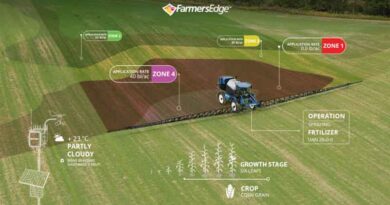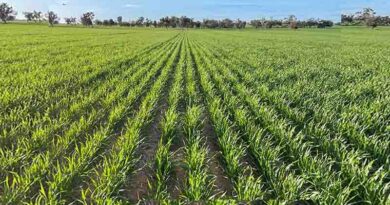How biological products help farmers confront uncertainty
20 November 2023, US: As a farmer, you learn to live with uncertainty year after year. The farming business involves constant challenges that, in many cases, you cannot control. What will the weather be like? What will happen in the markets? Will there be unforeseen expenses? Will I be able to improve my crop’s yield?
Uncertainty is the farmer’s worst enemy. But what if instead of living with uncertainty in the field, you surrounded yourself with tools that offered you more peace of mind? Keep reading because we’re going to tell you how you can reduce uncertainty in agriculture and increase profitability thanks to biological products.
Producing foods efficiently, sustainably and profitably means facing significant challenges in the current context. Climate conditions are increasingly extreme and less predictable, with droughts, floods, heat waves… unusual weather events that put our crops to the test.
Availability of water for irrigation is an increasingly limited resource, while production costs increase the pressure on farmers’ profitability. All of this against a background of new regulations that require food production to be increasingly environmentally friendly.
WHAT WE MEAN BY BIOLOGICAL PRODUCTS
The use of biological products on crops can separate us from uncertainty and bring us closer to a position of greater peace of mind. Why? Because it lets use increase the efficiency of crops when using resources like water, nutrients or the soil itself, helping them be more resilient in the face of stress, both weather-related and from pests and diseases. Healthier, more productive and, therefore, more profitable crops. And, also, in a more environmentally friendly way that reduces our dependence on synthetic solutions to maintain production levels.
These biological products are no longer a supplement but a powerful tool to help us protect and enhance the profitability of our crops.
Let’s look at some examples:
- Beneficial microorganisms. These are strains of selected microorganisms that can have a biostimulating activity, improving the absorption of nutrients and water and promoting the growth, quality and productivity of crops; or biofertilizer, improving the availability of nutrients for plants, aiding their nutrition and growth.
- Growth stimulants. These products contain natural compounds that stimulate the growth and resistance of plants. They can include amino acids and algae extracts.
- Biological pest control. This involves introducing natural predators into the crop environment to control pest populations.
GET MORE FROM YOUR CROPS
Although, of course, uncertainty in agriculture cannot completely disappear, we can adopt some strategies to achieve more efficient and profitable production.
In conventional agriculture, we protect our crops using chemical products. Does it make sense to use biological products as well? Including or not including biological products can be the difference between a good yield and an excellent yield. But it can also be the difference between a terrible yield from a bad harvest and a yield that saves the year.
Farmers who want more profitable and predictable production consider biological products not only an option, but a necessity for improving their day to day.
THE APPROACH TO EXTRA-EFFICIENT CROPS
Farmers have to produce in accordance with new regulations and society’s demands for sustainability. Where can farmers find a balance between profitable production and sustainable production? In efficiency. Efficiency is the point of balance that lets us produce better. Finding it isn’t easy, but biological products help us care for and make use of every centimeter of soil, every drop of water and every gram of nutrient.
Biological products are nature’s response to bring us ever closer to extra-efficient crops. A clear example is the use of selected strains of beneficial microorganisms that will help us on the road to efficiency.
This is what the mycorrhizal fungus Glomus iranicum var. tenuihypharum does. It develops a symbiotic relationship with crops. This plant-fungus symbiosis provides important benefits to both parties: it increases the root system of the crop and activates key metabolic processes like photosynthesis itself. It also enables crops to increase CO2 capture and boost water-use efficiency (WUE) and nutrient-use efficiency (NUE).
Farmers currently face enormous challenges, to which a response must be offered. Increasing temperatures and changes in precipitation; water scarcity; loss of biodiversity; the food security of the planet; changing and increasing pests and diseases; environmental protection and changes in consumption patterns are probably the most significant. Biological products offer answers to face all these challenges, to produce more with less and make better use of resources.
What if we can do it better, with less uncertainty, and can be more efficient and sustainable?
Do you want to learn more about our biostimulants based on our mycorrhizal fungus Glomus iranicum var. tenuihypharum?
Also Read: Global Fisheries Conference 2023 to be organized in India on 21-22 November at Ahmedabad
(For Latest Agriculture News & Updates, follow Krishak Jagat on Google News)















